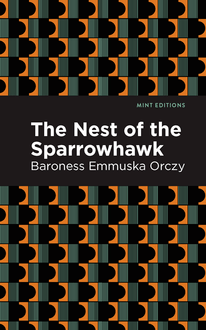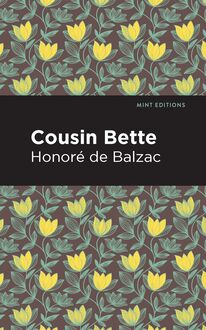-
 Univers
Univers
-
 Ebooks
Ebooks
-
 Livres audio
Livres audio
-
 Presse
Presse
-
 Podcasts
Podcasts
-
 BD
BD
-
 Documents
Documents
-
- Cours
- Révisions
- Ressources pédagogiques
- Sciences de l’éducation
- Manuels scolaires
- Langues
- Travaux de classe
- Annales de BEP
- Etudes supérieures
- Maternelle et primaire
- Fiches de lecture
- Orientation scolaire
- Méthodologie
- Corrigés de devoir
- Annales d’examens et concours
- Annales du bac
- Annales du brevet
- Rapports de stage
La lecture à portée de main
Vous pourrez modifier la taille du texte de cet ouvrage
Découvre YouScribe en t'inscrivant gratuitement
Je m'inscrisDécouvre YouScribe en t'inscrivant gratuitement
Je m'inscrisEn savoir plus
Vous pourrez modifier la taille du texte de cet ouvrage
En savoir plus

Description
After growing tired of civilization, Basil Merton moves to the island known as Shetland with his young son, Mordaunt. Much more social than his father, Mordaunt is content reaching out to the other few people residing in their community, and grows up alongside the Troil daughters, Brenda and Minna. Peaceful and absent of the typical issues of society, Mordaunt is happy on the island, and content with his friends. But everything changes with the arrival of Captain Cleveland. Shipwrecked with the rest of his crew, Captain Cleveland has no choice but to stay on the island. During his stay, he helps himself to whatever he likes, an attitude shared by his crew. While the pirates disrupt the usually quiet town, Captain Cleveland causes problems even closer to home for Mordaunt. After falling in love with Minna, Captain Cleveland is persistent in his advances, and is misleading about his lifestyle, playing into Minna’s ideas of heroics. Against her father’s and Mordaunt’s advice, Minna reciprocates the captain’s love, but the pirate can only hide the truth for so long. Featuring forbidden love, disturbances, and delightfully odd characters, The Pirate by Sir Walter Scott is an enthralling tale of adventure and romance. Written in an accessible style, The Pirate is a rare and vivid depiction of the culture and landscape of Shetland, including the portrayal of Captain Cleveland and his crew. With thorough description and well-developed characters, Sir Walter Scott shares a valuable and intriguing perspective on 17th century pirates, enlightening modern readers while also thrilling them with the adventurous narrative. This edition of The Pirate by Sir Walter Scott now features an eye-catching new cover design and is printed in a font that is both modern and readable. With these accommodations, this edition of The Pirate crafts an accessible and pleasant reading experience for modern audiences while restoring the original mastery of Sir Walter Scott’s literature.
Sujets
Informations
| Publié par | Mint Editions |
| Date de parution | 14 mai 2021 |
| Nombre de lectures | 0 |
| EAN13 | 9781513285382 |
| Langue | English |
| Poids de l'ouvrage | 2 Mo |
Informations légales : prix de location à la page 0,0500€. Cette information est donnée uniquement à titre indicatif conformément à la législation en vigueur.
Extrait
The Pirate
Sir Walter Scott
The Pirate was first published in 1819.
This edition published by Mint Editions 2021.
ISBN 9781513280363 | E-ISBN 9781513285382
Published by Mint Editions®
minteditionbooks.com
Publishing Director: Jennifer Newens
Design & Production: Rachel Lopez Metzger
Project Manager: Micaela Clark
Typesetting: Westchester Publishing Services
C ONTENTS V OLUME I I II III IV V VI VII VIII IX X XI XII XIII XIV XV XVI XVII XVIII XIX XX V OLUME II I II III IV V VI VII VIII IX X XI XII XIII XIV XV XVI XVII XVIII XIX XX XXI XXII A UTHOR’S N OTES E DITOR’S N OTES G LOSSARY
VOLUME I
I
The storm had ceased its wintry roar,
Hoarse dash the billows of the sea;
But who on Thule’s desert shore,
Cries, Have I burnt my harp for thee?
—M ACNIEL
That long, narrow, and irregular island, usually called the mainland of Zetland, because it is by far the largest of that Archipelago, terminates, as is well known to the mariners who navigate the stormy seas which surround the Thule of the ancients, in a cliff of immense height, entitled Sumburgh-Head, which presents its bare scalp and naked sides to the weight of a tremendous surge, forming the extreme point of the isle to the south-east. This lofty promontory is constantly exposed to the current of a strong and furious tide, which, setting in betwixt the Orkney and Zetland Islands, and running with force only inferior to that of the Pentland Frith, takes its name from the headland we have mentioned, and is called the Roost of Sumburgh; roost being the phrase assigned in those isles to currents of this description.
On the land side, the promontory is covered with short grass, and slopes steeply down to a little isthmus, upon which the sea has encroached in creeks, which, advancing from either side of the island, gradually work their way forward, and seem as if in a short time they would form a junction, and altogether insulate Sumburgh-Head, when what is now a cape, will become a lonely mountain islet, severed from the mainland, of which it is at present the terminating extremity.
Man, however, had in former days considered this as a remote or unlikely event; for a Norwegian chief of other times, or, as other accounts said, and as the name of Jarlshof seemed to imply, an ancient Earl of the Orkneys had selected this neck of land as the place for establishing a mansion-house. It has been long entirely deserted, and the vestiges only can be discerned with difficulty; for the loose sand, borne on the tempestuous gales of those stormy regions, has overblown, and almost buried, the ruins of the buildings; but in the end of the seventeenth century, a part of the Earl’s mansion was still entire and habitable. It was a rude building of rough stone, with nothing about it to gratify the eye, or to excite the imagination; a large old-fashioned narrow house, with a very steep roof, covered with flags composed of grey sandstone, would perhaps convey the best idea of the place to a modern reader. The windows were few, very small in size, and distributed up and down the building with utter contempt of regularity. Against the main structure had rested, in former times, certain smaller co-partments of the mansion-house, containing offices, or subordinate apartments, necessary for the accommodation of the Earl’s retainers and menials. But these had become ruinous; and the rafters had been taken down for fire-wood, or for other purposes; the walls had given way in many places; and, to complete the devastation, the sand had already drifted amongst the ruins, and filled up what had been once the chambers they contained, to the depth of two or three feet.
Amid this desolation, the inhabitants of Jarlshof had contrived, by constant labour and attention, to keep in order a few roods of land, which had been enclosed as a garden, and which, sheltered by the walls of the house itself, from the relentless sea-blast, produced such vegetables as the climate could bring forth, or rather as the sea-gale would permit to grow; for these islands experience even less of the rigour of cold than is encountered on the mainland of Scotland; but, unsheltered by a wall of some sort or other, it is scarce possible to raise even the most ordinary culinary vegetables; and as for shrubs or trees, they are entirely out of the question, such is the force of the sweeping sea-blast.
At a short distance from the mansion, and near to the sea-beach, just where the creek forms a sort of imperfect harbour, in which lay three or four fishing-boats, there were a few most wretched cottages for the inhabitants and tenants of the township of Jarlshof, who held the whole district of the landlord upon such terms as were in those days usually granted to persons of this description, and which, of course, were hard enough. The landlord himself resided upon an estate which he possessed in a more eligible situation, in a different part of the island, and seldom visited his possessions at Sumburgh-Head. He was an honest, plain Zetland gentleman, somewhat passionate, the necessary result of being surrounded by dependents; and somewhat over-convivial in his habits, the consequence, perhaps, of having too much time at his disposal; but frank-tempered and generous to his people, and kind and hospitable to strangers. He was descended also of an old and noble Norwegian family; a circumstance which rendered him dearer to the lower orders, most of whom are of the same race; while the lairds, or proprietors, are generally of Scottish extraction, who, at that early period, were still considered as strangers and intruders. Magnus Troil, who deduced his descent from the very Earl who was supposed to have founded Jarlshof, was peculiarly of this opinion.
The present inhabitants of Jarlshof had experienced, on several occasions, the kindness and good will of the proprietor of the territory. When Mr. Mertoun—such was the name of the present inhabitant of the old mansion—first arrived in Zetland, some years before the story commences, he had been received at the house of Mr. Troil with that warm and cordial hospitality for which the islands are distinguished. No one asked him whence he came, where he was going, what was his purpose in visiting so remote a corner of the empire, or what was likely to be the term of his stay. He arrived a perfect stranger, yet was instantly overpowered by a succession of invitations; and in each house which he visited, he found a home as long as he chose to accept it, and lived as one of the family, unnoticed and unnoticing, until he thought proper to remove to some other dwelling. This apparent indifference to the rank, character, and qualities of their guest, did not arise from apathy on the part of his kind hosts, for the islanders had their full share of natural curiosity; but their delicacy deemed it would be an infringement upon the laws of hospitality, to ask questions which their guest might have found it difficult or unpleasing to answer; and instead of endeavouring, as is usual in other countries, to wring out of Mr. Mertoun such communications as he might find it agreeable to withhold, the considerate Zetlanders contented themselves with eagerly gathering up such scraps of information as could be collected in the course of conversation.
But the rock in an Arabian desert is not more reluctant to afford water, than Mr. Basil Mertoun was niggard in imparting his confidence, even incidentally; and certainly the politeness of the gentry of Thule was never put to a more severe test than when they felt that good-breeding enjoined them to abstain from enquiring into the situation of so mysterious a personage.
All that was actually known of him was easily summed up. Mr. Mertoun had come to Lerwick, then rising into some importance, but not yet acknowledged as the principal town of the island, in a Dutch vessel, accompanied only by his son, a handsome boy of about fourteen years old. His own age might exceed forty. The Dutch skipper introduced him to some of the very good friends with whom he used to barter gin and gingerbread for little Zetland bullocks, smoked geese, and stockings of lambs-wool; and although Meinheer could only say, that “Meinheer Mertoun hab bay his bassage like one gentlemans, and hab given a Kreitz-dollar beside to the crew,” this introduction served to establish the Dutchman’s passenger in a respectable circle of acquaintances, which gradually enlarged, as it appeared that the stranger was a man of considerable acquirements.
This discovery was made almost per force ; for Mertoun was as unwilling to speak upon general subjects, as upon his own affairs. But he was sometimes led into discussions, which showed, as it were in spite of himself, the scholar and the man of the world; and, at other times, as if in requital of the hospitality which he experienced, he seemed to compel himself, against his fixed nature, to enter into the society of those around him, especially when it assumed the grave, melancholy, or satirical cast, which best suited the temper of his own mind. Upon such occasions, the Zetlanders were universally of opinion that he must have had an excellent education, neglected only in one striking particular, namely, that Mr. Mertoun scarce knew the stem of a ship from the stern; and in the management of a boat, a cow could not be more ignorant. It seemed astonishing such gross ignorance of the most necessary art of life (in the Zetland Isles at least) should subsist along with his accomplishments in other respects; but so it was.
Unless called forth in the manner we have mentioned, the habits of Basil Mertoun were retired and gloomy. From loud mirth he instantly fled; and even the moderated cheerfulness of a friendly party, had the invariable effect of throwing him into deeper dejection than even his usual demeanour indicated.
Women are always particularly desirous of investigating mystery, and of alleviating melancholy, especially
-
 Univers
Univers
-
 Ebooks
Ebooks
-
 Livres audio
Livres audio
-
 Presse
Presse
-
 Podcasts
Podcasts
-
 BD
BD
-
 Documents
Documents
-
Jeunesse
-
Littérature
-
Ressources professionnelles
-
Santé et bien-être
-
Savoirs
-
Education
-
Loisirs et hobbies
-
Art, musique et cinéma
-
Actualité et débat de société
-
Jeunesse
-
Littérature
-
Ressources professionnelles
-
Santé et bien-être
-
Savoirs
-
Education
-
Loisirs et hobbies
-
Art, musique et cinéma
-
Actualité et débat de société
-
Actualités
-
Lifestyle
-
Presse jeunesse
-
Presse professionnelle
-
Pratique
-
Presse sportive
-
Presse internationale
-
Culture & Médias
-
Action et Aventures
-
Science-fiction et Fantasy
-
Société
-
Jeunesse
-
Littérature
-
Ressources professionnelles
-
Santé et bien-être
-
Savoirs
-
Education
-
Loisirs et hobbies
-
Art, musique et cinéma
-
Actualité et débat de société
- Cours
- Révisions
- Ressources pédagogiques
- Sciences de l’éducation
- Manuels scolaires
- Langues
- Travaux de classe
- Annales de BEP
- Etudes supérieures
- Maternelle et primaire
- Fiches de lecture
- Orientation scolaire
- Méthodologie
- Corrigés de devoir
- Annales d’examens et concours
- Annales du bac
- Annales du brevet
- Rapports de stage




















